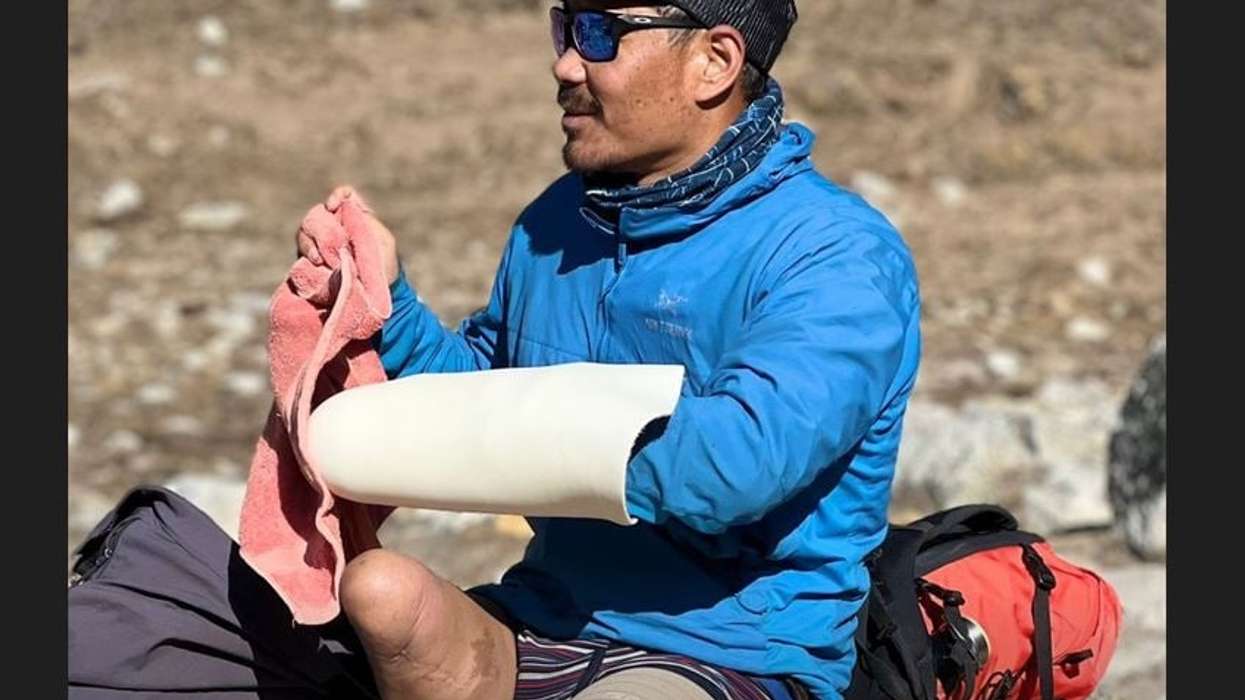A British Army veteran who lost two legs in Afghanistan hopes to become first double above-the-knee (DAK) amputee to scale Everest.
Royal Gurkha Regiment veteran Hari Budha Magar, 43, now works with an all-Nepali team to attempt to conquer the world’s highest mountain in May, The Guardian reported.
Climbing the mountain without knees is significantly harder and he will be crawling up Everest using his hands. Two climbers with below-knee amputations have reached Everest’s summit before.
According to the report, he will be kitted out with special climbing legs fitted with battery-powered heaters to stave off frostbite.
"Knowing there are veterans and other military personnel with shared experiences that believe in me is truly motivating. To be able to inspire others, whether they have a disability or not, and show how the right mindset can result in achieving dreams is so powerful," Budha Magar, who lives in Canterbury, Kent, with his family, wrote on his Twitter page.
With this adventure, he also wants to change perceptions around disability. “Even now, especially in remote places, disabled people are viewed as ‘the burden of the earth’, with disabilities seen as sins of a previous life,” Budha Magar was quoted as saying.
The former soldier is aware that his effort will take three times longer than able-bodied climbers to reach the 8,848-metre summit. However, he is confident that his upper-body strength will help him immensely.
In 2017, he became the first DAK amputee to summit over 6,000 metres on Mera Peak, Nepal’s highest trekking peak (6,476 metres). He also scaled Mont Blanc (4,810 metres) and Kilimanjaro (5,895 metres).
He abandoned an attempt to climb another Himalayan peak, Mount Himlung (7,126 metres), last year after one of his team got sick and the whole crew were almost buried by snow.
Born in a cowshed in Nepal, Budha Magar was married off at 11 and became a father at 17. He left Nepal aged 19, and was one of 230 Nepalis chosen to join the British army from 10,000 applicants.
He served for 15 years but while on patrol in Afghanistan in April 2010, he stepped on an improvised explosive device (IED).
Budha Magar told The Guardian that he was suicidal after he lost his legs but a charity, Battle Back, offered him the chance to go skydiving.
“That was a big turning point for me, especially for my confidence. I said yes thinking: ‘Half my body is gone; if the other half goes too, so what?’ In the Gurkhas we have this motto: ‘It is better to die than be a coward’ so I can’t be a coward. And when we landed on the ground I realised that even without legs you are able to do lots of things," he told the newspaper.
He began doing sports – kayaking, golf, rock climbing, archery, table tennis – before setting his sights on mountaineering. He began training to climb Everest in 2018.
When the Nepali tourism ministry banned solo climbers, blind people and double amputees from climbing Everest, Budha Magar led a campaign to overturn the ban.
He even travelled to Geneva to address the UN citing the UN Convention on the Rights of Persons with Disabilities.
The army veteran has raised more than £200,000 towards his Everest attempt and seeks another £100,000 of sponsorship to travel to Nepal with former Gurkha and SAS mountaineer Krishna Thapa, his expedition leader.
According to the report, the duo will be accompanied by eight Sherpas instead of the usual one or two, and plan five or six camps between base camp and the summit, rather than the usual four.





